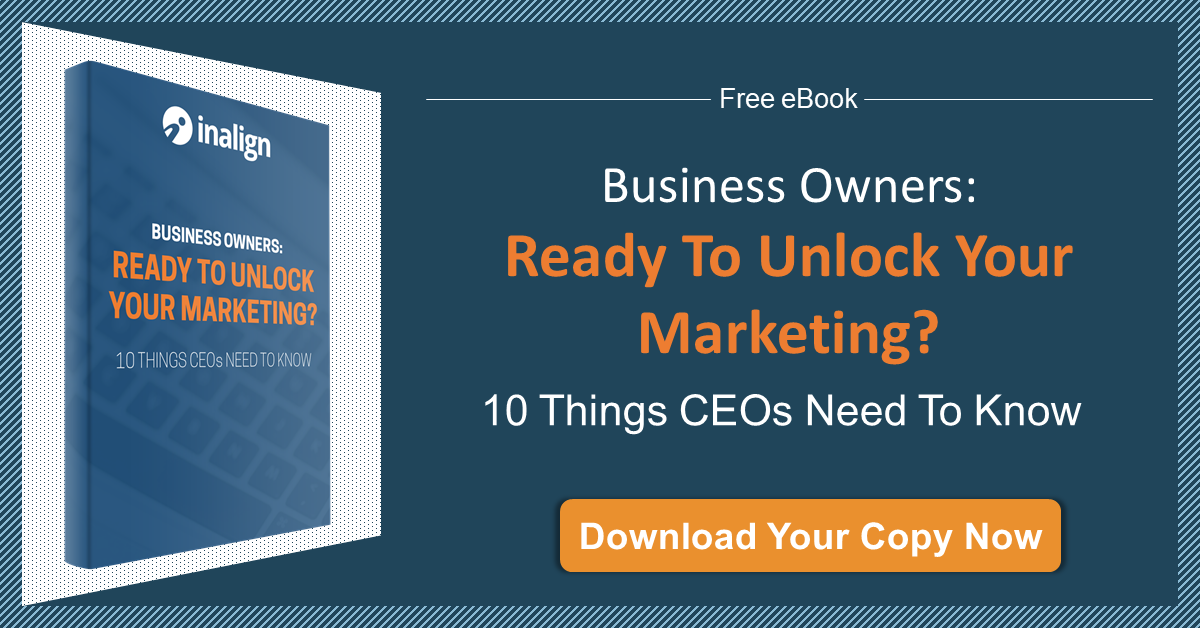Hiring a marketing agency is hard.
There's simply no shortcut to finding a team that fits your organization, aligns with your internal process and can help you achieve your organizational goals.
In addition, there is possibly no greater change in business over the last 10 years than in how companies communicate with their prospective customers.
As the internet and connectivity have matured, a wealth of communications channels have emerged. The result has been a fundamental change in the way buyers behave and respond before, during, and after they do business with you.
These two factors - an excess in supply and a steep rise in consumer sophistication & complexity - have created a perfect storm for businesses today.
Organizations are now faced with two very big decisions that must be made simultaneously: what marketing activities to focus on and who to hire to do them.
This leads to a common scene: Companies engage with a marketing agency that they feel will help them grow. They sign an agreement (typically a year commitment) and find themselves frustrated after 7-10 months because the results simply haven't happened.
The hamburger that is dropped in your paper bag at the drive-thru looks a lot different than the one on the television...
So what's happening here?
Are marketing agencies completely incapable of doing their jobs? Are organizations incapable of articulating their goals, or supporting the agency in decision-making?
My hope is that this post begins to unpack the causes of frustration and gives you some criteria for improving your existing agency relationship, or selecting your next.
1.) Engagement Model
The agency model is a services business, and they suffer from the same challenges that all service businesses suffer from.
An agency's long-term strategy is to create a stable, predictable flow of cash.
Like any business, they want to build their service and fee model around their goals.
This is why agencies look to engage in a retainer: with every new retainer they sign they are able to forecast revenue months out. This allows them to hire great people, invest in infrastructure, and train new employees on the latest marketing trends.
The other benefit of this engagement model is that the client gets a better outcome (when done right). Over the long term, the agency is able to embed themselves in their client's business, learn how they think, share in successes, and serve as an extension of the team.
Today's marketing requires consistent and thoughtful production of content and design - an ongoing relationship directly aligns with nature in which services are performed.
But this model is often full of potholes and head winds.
It asks for way too much from both parties at the outset of a relationship. It's like an arranged wedding; some of them are going to work out but the risk is high and the consequences are severe if the relationship doesn't work out.
Imagine losing a year of marketing against your competitors... The agency, too, could be engaging in grossly unprofitable work that could bankrupt the company.
What to do -
Look for an agency that is willing to do a short-term trial.
Use this time to get to know each other's styles and for you to get some items checked off your marketing "to-do" list. Think of it like you would a trial membership at a gym.
Find out what the agency can get done in a tight time frame.
A good agency should be able to turn something around in one to two months that adds value.
It's unlikely to be a doubling in lead flow, but you're looking for signs that the agency can produce, and that the relationship will be a positive one.
2.) Definition of Success
You and your chosen agency are a team.
That team won't function if one is trying to score runs and the other is trying to score touchdowns.
I talk to a lot of businesses who are confused on this point. The growth of social media, blogging, email marketing, and funnel analytics have created mystery and confusion around what marketing success actually means.
Because we have the domain expertise on these channels we provide guidance on which metrics are important. However, an engagement is never successful if our client doesn't buy in to those success factors wholeheartedly.
We need to be speaking the same language, and working together to push agreed-upon metrics forward in the desired direction.
Months of frustration can be avoided by simply taking the time to define what your organizational goals are, what your marketing will look like when it gets there, and having a collective strategy to work towards those goals.
What to do -
Ensure that some form of measurement is central to your marketing engagement.
If it isn't, run.
Where there is mystery there is margin. If you don't know what metrics you should be trying to improve, talk to your agency (or to a few agencies) and get a feel for what they think.
Once you have a set of metrics that you should be paying attention to, internalize them. This can't be overstated.
Marketing has evolved from a department within an organization to a part of the organization's DNA. Your internal team needs to understand, agree upon, and be willing to make decisions based upon the data.
3.) Agreement on your story
An agency is going to try to grow your business, but that should be on your terms with the customer you want.
Contemporary marketing facilitates a wonderful opportunity for businesses to hand-pick their customers. This happens in the keywords they pick to optimize for, the content they create, the emails then send, the Facebook posts they make.
In today's marketing you pick your customer and put out a big target for them to hit. Trouble arises when an agency misunderstands who they're laying a target our for.
Make sure that your agency understands your business on a deep level. They should fundamentally understand what makes you unique, why that's taken place, and where you want to go in the future.
What to do -
When evaluating an agency, bring stakeholders in from every part of the business that you can: Sales, Marketing, Operations, Product, Support, Legal, etc..
Try to identify the agency that "gets you" the best.
Identify the language that they are using and the strategy that they're recommending. It's probably the right direction.
Conclusion
There's no doubt that finding the perfect agency for your organization can be a long journey, but there are fantastic relationships and results to be had.
It is hard, but that's no one's fault; there is no certification for selecting marketing vendors.
There's no manual, no course and the result is truly the chaotic world of services, technologies, and companies all trying to find traction.
Hopefully the above helps provide some tactical waypoints.



.png)




